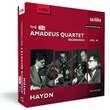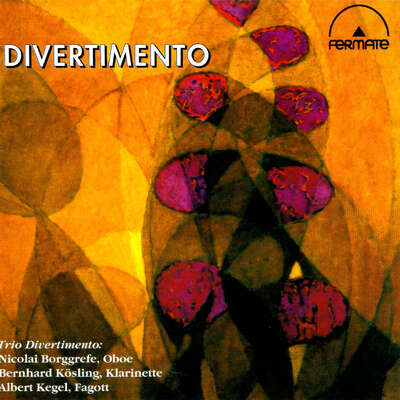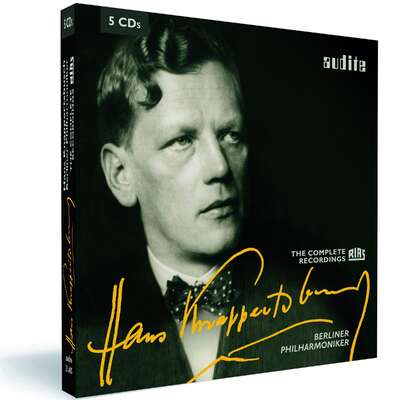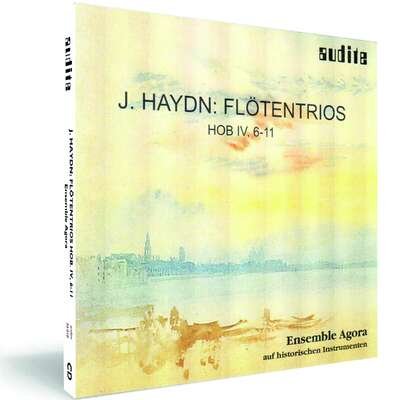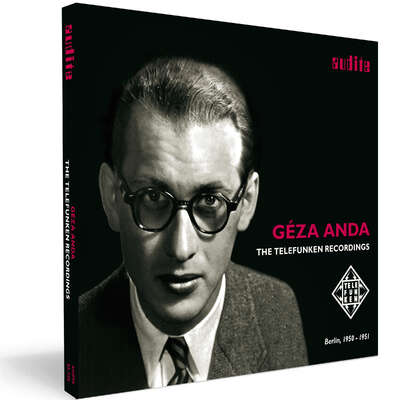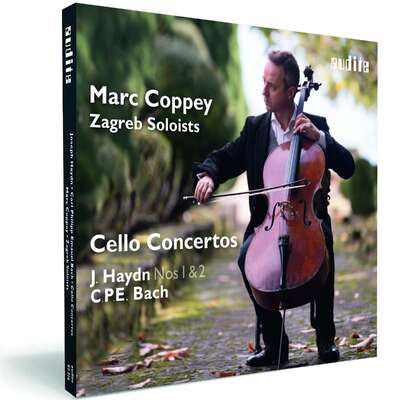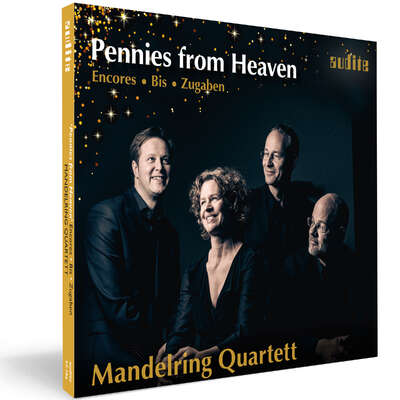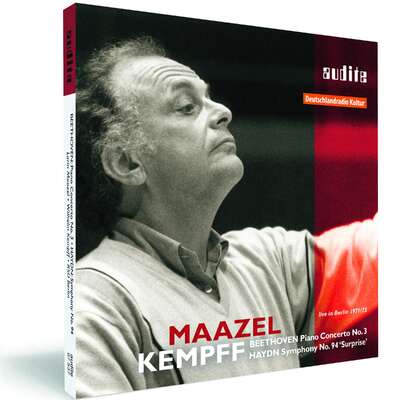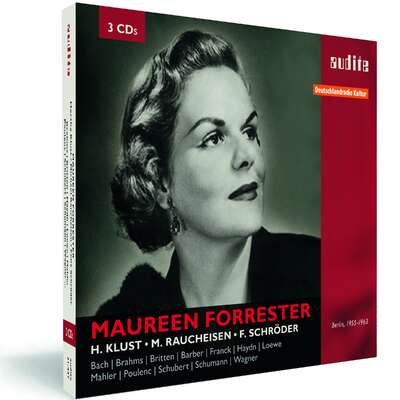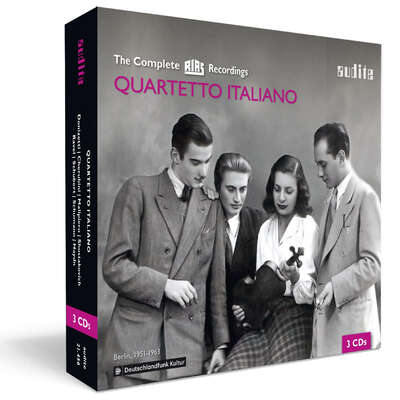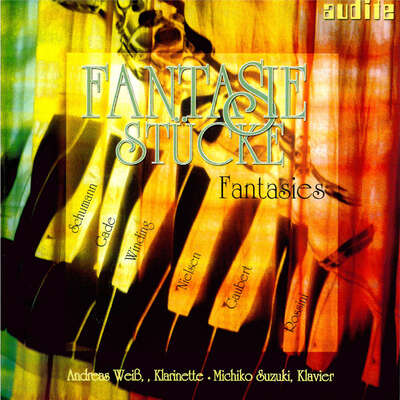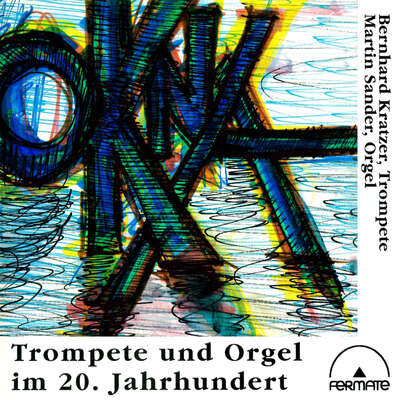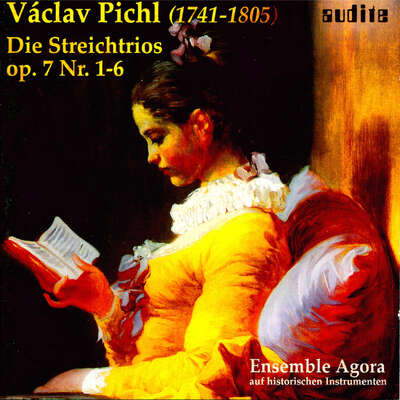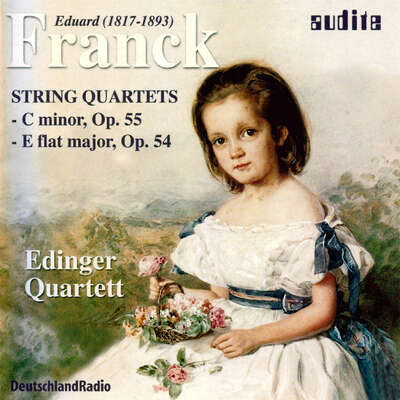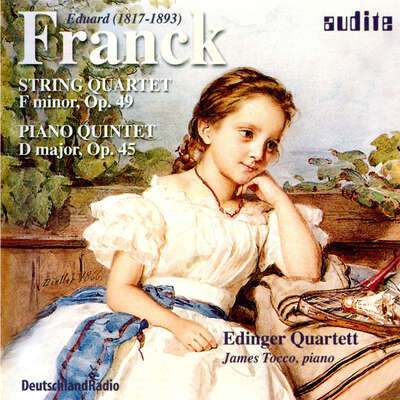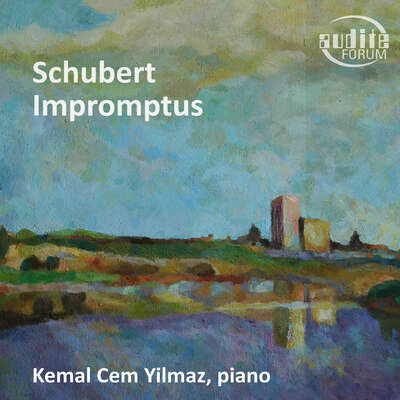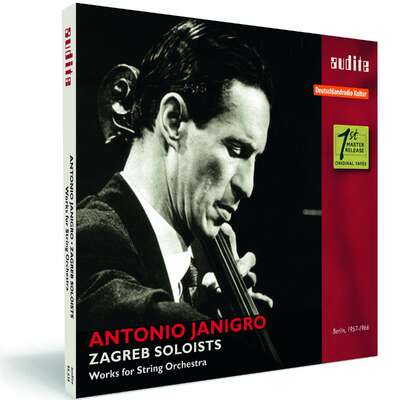
Auto-Rip
In den hier zum ersten Mal veröffentlichten Berliner Rundfunkproduktionen ist das Amadeus-Quartett mit 14 Streichquartetten von Joseph Haydn sowie der Streichquartettfassung der „Sieben letzten Worte“ zu hören. Drei Streichquartette aus der frühen Schaffensphase Haydns, op. 9/3, op. 20/5 und op. 33/2, die das Amadeus-Quartett nie auf Schallplatte eingespielt hat, werden hier erstmalig in ihrer Interpretation vorgelegt.mehr
In den hier zum ersten Mal veröffentlichten Berliner Rundfunkproduktionen ist das Amadeus-Quartett mit 14 Streichquartetten von Joseph Haydn sowie der Streichquartettfassung der „Sieben letzten Worte“ zu hören. Drei Streichquartette aus der frühen Schaffensphase Haydns, op. 9/3, op. 20/5 und op. 33/2, die das Amadeus-Quartett nie auf Schallplatte eingespielt hat, werden hier erstmalig in ihrer Interpretation vorgelegt.
Titelliste
Diesen Bonustrack erhalten Sie ausschließlich als Download!
Details
| The RIAS Amadeus Quartet Haydn Recordings | |
| Artikelnummer: | 21.426 |
|---|---|
| EAN-Code: | 4022143214263 |
| Preisgruppe: | BCG |
| Veröffentlichungsdatum: | 17. März 2017 |
| Spielzeit: | 377 min. |
Zusatzmaterial
- Digibooklet
-
Producer's comment
unmittelbare Eindrücke des Produzenten Ludger Böckenhoff
-
Die sieben letzten Worte op. 51: Texte
Montierte Fassung für Streichquartett und Sprecher
- WDR3 TonArt_20170421
Informationen
Der vorliegende sechste Band der RIAS Amadeus Quartet Recordings komplettiert die 27 CDs umfassende Edition. Aus diesem Anlass stellen wir auf audite.de/21426 einen umfangreichen Gratis-Download bereit: Die radiophone Fassung der „Sieben letzten Worte" (RIAS 1952) montiert die Musikaufnahmen mit Lesungen der Bibelworte und literarischen Auslegungen, angelehnt an den liturgischen Ablauf der Uraufführung. Diese erweiterte Version ergänzt die 6 CD-Box und ermöglicht einmal mehr einen intensiven Blick in die Rundfunkgeschichte der 1950er Jahre, der letztlich die gesamte Serie der Amadeus-Quartett-Aufnahmen bei audite zu verdanken ist.
Die Streichquartette von Joseph Haydn, von Musikern gern als die Grundlage des Quartettspiels bezeichnet, bedeuteten für das Amadeus-Quartett nicht nur eine Pflicht. Im Gegenteil, sie widmeten sich während ihrer gesamten vierzig Jahre währenden Karriere kontinuierlich und ausgiebig vorzugsweise den mittleren und späten Quartetten. In die meisten ihrer Konzertprogramme fügten sie ein Quartett von Haydn ein und in ihrem klingenden Nachlass, den Schallplatten- und Rundfunkeinspielungen, machen die Streichquartette von Joseph Haydn mehr als ein Fünftel aller Aufnahmen aus (nur Beethovens Quartette haben sie vergleichbar häufig eingespielt). Als Grund für die hohe Wertschätzung dieser Werke nannten die Musiker des Amadeus-Quartetts einerseits die leichte manuelle Bewältigung von Haydns Partituren, doch gleichzeitig die hohen musikalischen Anforderungen, denn, so Norbert Brainin: „Alles, was man öffentlich spielt, ist schwer. Und je leichter etwas ist, desto schwerer wird es, weil man dann die Flöhe husten hört. Haydn und Mozart sind ein Seiltanz". In Vorbereitung der Einstudierung der Werke mussten sich die Musiker intensiv mit dem Notentext beschäftigen, denn vieles, was ihnen in den alten Notendrucken als unsinnig erschien, stellte sich später, als sie die Handschriften Haydns studieren konnten und Urtextausgaben erschienen waren, als fehlerhaft heraus.
Auf Schallplatte nahm das Amadeus-Quartett nur die Quartette ab der Werkreihe op. 54 auf; mit den hier vorgelegten Erstveröffentlichungen der Rundfunkproduktionen, die alle im Berliner RIAS aufgenommen wurden, sind nun auch erstmalig drei Streichquartette aus der frühen Schaffensphase Haydns, op. 9 Nr. 3, op. 20 Nr. 5 und op. 33 Nr. 2 in der Interpretation des Amadeus-Quartetts zu hören.
Zusätzlich zu den authentischen Quartettkompositionen wird die Edition ergänzt durch die Einspielung der Streichquartettbearbeitung der „Sieben letzten Worte". Ursprünglich als Orchesterwerk entstanden und Jahre später von Haydn zu einem Oratorium umgearbeitet, ist die Quartettfassung, die Haydn gleichzeitig mit dem Klavierauszug als Reduktion der originalen Orchesterfassung erstellte, heute die beliebteste und am häufigsten gespielte Fassung dieses Werkes.
Ein zusätzlicher Bonustrack ist auf CD 1 zu hören: Es ist das Fragment des zweiten Satzes einer allerersten Haydn-Aufnahme des Amadeus-Quartetts im RIAS aus dem Jahre 1950. Dasselbe Streichquartett op. 54 Nr. 2 lag auch in ihrer letzten RIAS-Session 1969 auf den Notenpulten. Norbert Brainins von osteuropäischer Volksmusik inspiriertes Violinsolo ist in der ganz frühen Einspielung fast noch idiomatischer gelungen, was zu einem reizvollen Vergleich führt.
Besprechungen
www.musicweb-international.com | Tuesday August 22nd | Jonathan Woolf | 22. August 2017 | Quelle: http://www.music...
The sixth volume in Audite’s survey of the Amadeus Quartet’s RIAS broadcasts covers a two-decade period between 1950 and 1969 and focuses securelyMehr lesen
Audite have taken the decision to programme the quartets chronologically so that the trio of previously unrecorded quartets appear on the very first CD. This also means that a work recorded in 1951 can be followed by one taped in 1969 which is itself followed by something from 1950. It’s fortunate that the engineers achieved so high a standard throughout the sequence, so that the switch between years is not jarring. Op.9 No.3 is quite taut and forward-moving in the opening, possibly more Allegro than Moderato as marked whilst Brainin’s concertante role in the Menuet is played with rich sweetness. The Adagio in Op. 20 No.5 is beautifully cantilevered, songfully expressive with the decorate first violin flourishes dexterously dispatched. Op.33 No.3, nicknamed The Joke, goes so well in this performance that one wonders why it was so seldom played and never recorded by the quartet. These are the many highlights of the first disc but one shouldn’t omit the rapt slow movement of Op. 54 No.2 which is heard in two contexts – firstly in a performance of the quartet from 1969 and as an appendix, as an isolated movement in a broadcast from June 1950.
Though one now moves into terra cognita from the second disc onwards there are always changes in emphasis or breadth when considering these broadcast performances in the context of the DG legacy. So, for instance, the 1956 reading of Op.64 No.3 is more tightly charged than the later 1973 studio reading and so too is the slow movement of Op.64 No.4 from 1959. There’s just a little bit of an edge to the corporate sound in the November 1951 recording of Op.74 No.1 but it sounds altogether more committed than the tamer-sounding DG LP. I happen to find the tempo of this 1957 reading of the slow movement of The Rider, Op.74 No.3, preferable to the significantly slower but beautifully voiced DG. The group’s readings of Opp.76 and 77 were always amongst their very best and Op.76 No.1 is no exception. There’s little to choose between this 1960 performance and the commercial recording, as the slow movement is beautiful in both cases. The bucolic pizzicati in the succeeding Menuet work equally well here, as indeed does the buoyant and nobly conceived reading of the Emperor, recorded in April 1951. Like the studio performance, the slow movement of The Sunrise is quite expansive. Disc four reveals an Op.77 No.1 that’s slightly more mellow sounding than the shriller DG recording. Warmer, wittier and a lot less acidic this is a real improvement on that commercial legacy. Though the 1950 sound is not of the best, the performance of Op.77 No.2 is laudable with an especially touching and solemn close to the Andante. The Seven Last Words dates from December 1952 and its meditative beauties are perfectly conveyed in this reading. Note that an extended version with the German texts is available as a free download via Audite.
A well-crafted booklet, in German and English, reinforces the novelty of those three early quartets and the fact that all the performances are making their first ever commercial appearance here. All this makes this box of high importance to admirers of this august group.
Diapason | N° 659 Juillet-Août 2017 | Jean-Michel Molkhou | 1. Juli 2017
C'est par ce sixième volume, intégralement consacré à Haydn, qu'Audite clôt sa prodigieuse série dédiée aux enregistrements du Quatuor AmadeusMehr lesen
Bien que, dans ces témoignages de jeunesse (1951-1952), leur expression n'ait pas encore atteint son plein épanouissement, on y reconnaît déjà (presque) tout ce qui fera la légende des Amadeus : le vibrato de Brainin, leur science de l'agencement des voix et leur volupté instinctive à faire chanter les lignes, tout comme ce zeste d'impatience qui donne une formidable impulsion à leurs archets (finale de l'Opus 74 nO 1). Ces enregistrements ne présentent pas encore la touche d'abandon et la liberté si caractéristiques de leur maturité, mais déjà une poésie divinement organisée et une suprême justesse de goût. Comparaison et confirmation dans les deux versions (1950/1969) du miraculeux Adagio de l'Opus 54 nO 2, qui permettent de mesurer le chemin parcouru. En suivant le fil de ces interprétations, on réalise que l'évolution expressive fut rapide car dès le milieu des années 1950 (Opus 64 nO 3) on reconnaît la grâce, les touches de fantaisie (Menuetto) comme cette irrésistible façon de livrer leur émotion (Adagio) qui feront leur gloire. Plus on avance dans le temps plus leur signature devient claire (Opus 64 nO 4), par les timbres,les vibratos, la vocalité (Adagio) ou la manière de faire respirer les barres de mesure. Ecoutez notamment leur magistrale lecture de l'Opus 77, dans lesquels ils traduisent si clairement la transition entre les langages du XVIIIe et du XIXe siècles (le finale de l'Opus 77 nO 2 est époustouflant). C'est avec les Sept Paroles, dans une vision empreinte de grandeur et de solennité, captée deux ans après leur première gravure officielle pour Westminster, que se conclut cet envoûtant périple en nous laissant un sentiment d'éternité.
www.pizzicato.lu | 28/06/2017 | Uwe Krusch | 28. Juni 2017 | Quelle: https://www.pizz... Haydn zu spielen ist ein Seiltanz
Haydns Streichquartette und das ‘Amadeus Quartett’, zwei Themen, die nicht so super zusammenpassen wollen. Die vier Musiker waren sich bewusst,Mehr lesen
Trotzdem hat das ‘Amadeus Quartett’ sich nur partiell mit Haydns Quartetten beschäftigt. Insbesondere die späten und reifen Werke wurden gespielt. Von den frühen Kompositionen wurden nur einzelne aufgeführt.
Für die vorliegenden Radioaufnahmen hat das Quartett etliche Stücke zum ersten Mal eingeübt und eingespielt. Insofern ist diese Kollektion ein interessantes historisches Dokument von besonderem Wert.
Die Interpretation ist dagegen aus heutiger Sicht nicht mehr so ganz aktuell. Natürlich legen die vier eine ausgefeilte Deutung vor, doch mit dem heutigen Wissen und den Entwicklungen durch die historisch informierte Aufführungspraxis sind wir an ein anderes Klangideal gewöhnt.
Am Beispiel des letzten Werkes, der ‘Sieben letzten Worte des Erlösers am Kreuze’, ist zu konstatieren, dass das Stück ohne den denkbaren Tiefgang und die Feinheit im Detail etwas zu öffentlichkeitswirksam gespielt wird. Wer das Glück hatte, das Abschiedskonzert des ‘Lindsay Quartet’ in Echternach vor 13 Jahren zu hören, der weiß, dass auch bei einem älteren Quartett eine wunderbar intime, private Deutung quasi mit Ausschluss des Publikums möglich war.
The Amadeus Quartet performs a selection of Haydn quartets. Some pieces were rehearsed and performed the first time by the Amadeus for this radio recording. But the performances are trapped in their time. Today, with all the knowledge provided by the historically informed playing, we are used to another sound ideal. Therefore, this collection is an essentially an interesting historic document.
Gramophone | June 2017 | Rob Cowan | 1. Juni 2017 | Quelle: https://reader.e...
Three more first-release recordings arrive via Audité’s latest volume of Deutschlandradio Kultur recordings by the Amadeus Quartet, this batchMehr lesen
ClicMag | N° 50 Juin 2017 | Jean-Charles Hoffelé | 1. Juni 2017
Derrière la perfection formelle, l'intonation parfaite, c'est Haydn qui parait dans toute ses prospectives.Mehr lesen
www.artalinna.com | 27 May 2017 | Jean-Charles Hoffelé | 27. Mai 2017 | Quelle: http://www.artal... Plutôt que Mozart
Derrière la perfection formelle, l'intonation parfaite, c'est Haydn qui parait dans toute ses prospectives.Mehr lesen
WDR 3 | TonArt | 21.04.2017 | 15.05-17.45 Uhr | Marcus Stäbler | 21. April 2017 | Quelle: http://www1.wdr.... BROADCAST
Anmod.:<br /> In den 50er und 60er Jahren war das Amadeus Quartet oft fürMehr lesen
In den 50er und 60er Jahren war das Amadeus Quartet oft für
Neuigkeiten
The sixth volume in Audite’s survey of the Amadeus Quartet’s RIAS broadcasts...
C'est par ce sixième volume, intégralement consacré à Haydn, qu'Audite clôt...
Three more first-release recordings arrive via Audité’s latest volume of...
La postérité aura accolé aux Amadeus les Quatuors de Mozart, quoi de plus...
